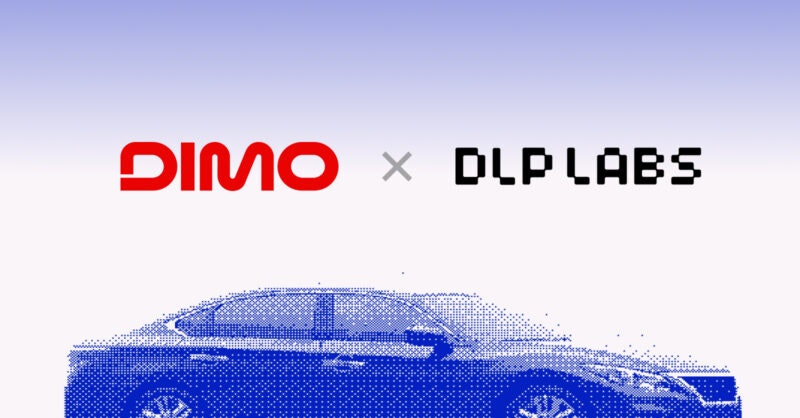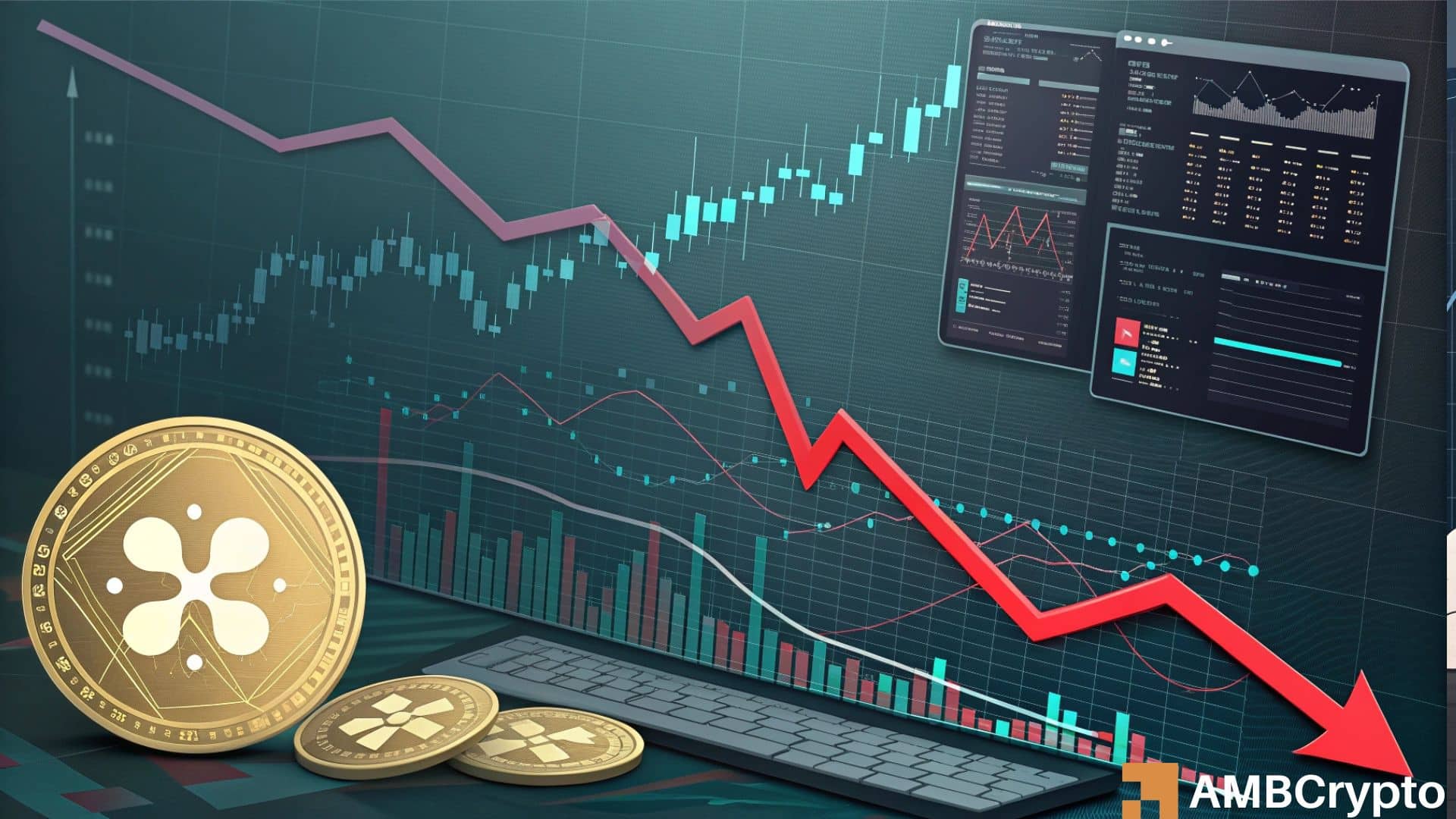Latest DePIN News

2 months ago
Marta Belcher: Pioneering Women in Blockchain Law
On the eve of International Women’s Day, we had the opportunity to speak with Marta Belcher, a trailblazer in blockchain law and a prominent advocate for civil liberties. As the president of the Filecoin Foundation and its sister organization, the Filecoin Foundation for the Decentralized Web, Belcher has made significant contributions to the cryptocurrency landscape. Her extensive experience includes serving as general counsel and head of policy at Protocol Labs, as well as holding positions on the Board of Directors of Creative Commons and the Blockchain Association. Belcher's influence extends to legislative bodies worldwide, where she has testified on crypto policy, showcasing her dedication to shaping the future of blockchain technology.
Belcher's journey into technology policy began during her college years when she led a nonprofit organization called No Worries Now, which supported teens with life-threatening illnesses. This experience opened her eyes to the impact of technology on healthcare, particularly in advocating for public umbilical cord blood banking. Her early advocacy work laid the foundation for her career in technology law, where she recognized the potential of blockchain to protect civil liberties and privacy. Since her first involvement in the blockchain space in 2015, Belcher has been instrumental in various initiatives, including writing the first blockchain-transferable software license and defending patent litigation against blockchain companies.
Despite holding multiple roles, Belcher emphasizes a strategy of 'work-life integration,' driven by her mission to leverage technology for civil liberties. She highlights the presence of remarkable women in the crypto industry, countering the narrative of a male-dominated space. With a leadership team at the Filecoin Foundation that is predominantly female, Belcher believes that the focus on talent rather than gender has led to a diverse and effective organization. Her insights reflect a growing recognition of women's contributions to the blockchain sector, underscoring the importance of inclusivity in shaping the future of technology.

2 months ago
US Senate Banking Committee to Vote on Updated GENIUS Act for Stablecoin Regulation
The US Senate Banking Committee is preparing to vote on the Republican-led stablecoin framework bill known as the GENIUS Act on March 13. This bill has undergone significant revisions following bipartisan discussions, with input from both Democratic and Republican senators. Co-sponsor Senator Bill Hagerty announced the updated version on March 10, emphasizing its improvements in key areas such as consumer protections, authorized stablecoin issuers, risk mitigation, and transparency. The bill aims to regulate US dollar stablecoin issuers with market caps exceeding $10 billion, primarily targeting Tether (USDT) and Circle's USDC, under Federal Reserve oversight, while allowing smaller issuers to choose state-level regulation.
The latest updates to the GENIUS Act have sparked discussions within the crypto community, particularly regarding the competitive landscape for stablecoins. Dom Kwok, co-founder of the Web3 learning app EasyA, noted that the bill provides US-issued stablecoins with a competitive advantage over foreign counterparts. The updated legislation imposes stringent standards on foreign stablecoin issuers concerning reserve and liquidity requirements, as well as compliance with anti-money laundering regulations. This could potentially disadvantage many foreign issuers, giving USDC and Ripple Labs' Ripple USD (RLUSD) an edge in the market.
Despite these advancements, the GENIUS Act still faces hurdles before it can be enacted into law. Following the Senate Banking Committee's vote, the bill will proceed to a full Senate floor vote, where it will be subject to further debate. If it successfully passes through the Senate, it will then move to the House of Representatives. Should the House approve the bill without amendments, it will be sent to President Donald Trump for final approval or veto. The outcome of this legislative process could significantly shape the regulatory landscape for stablecoins in the United States.

2 months ago
DIMO Partners with DLP Labs to Monetize Vehicle Data
DIMO has announced a partnership with DLP Labs aimed at empowering vehicle owners to monetize their car data through secure, user-owned AI technology. This collaboration allows users to participate in data-sharing programs, enabling them to earn rewards as developers create innovative applications and services. With just a few clicks, DIMO users can qualify for the upcoming Token Generation Event (TGE) for $DLP tokens, ensuring they maintain full control over their vehicle data while benefiting from its value.
The initiative introduces several incentives for early adopters, including participation points that can be converted into $DLP tokens during the TGE. Users can opt in and out of data sharing at their discretion, allowing them to manage how their vehicle data is utilized. This data will contribute to the development of privacy-preserving AI applications across various sectors, including mobility and energy. The process to get started is straightforward: users need to create a DIMO account, log in to DLP Labs, and connect their wallets to begin earning points that will enhance their token allocation during the TGE.
DLP Labs emphasizes the importance of granting permissions for full vehicle data access, which is essential for developers to create applications that improve mobility and energy efficiency. Users can opt out of data sharing at any time, ensuring their control over personal data. This partnership is set to evolve, promising new earning opportunities and expanded use cases for DIMO users. As the value of vehicle data continues to grow, DIMO users are encouraged to take advantage of this innovative approach to monetize their data effectively.

2 months ago
Render Network Explores Decentralized AI Innovations at ETH Denver 2025
The Render Network has made significant strides in decentralized AI and DePIN (decentralized physical infrastructure networks) at ETH Denver 2025. This event underscored the increasing relevance of decentralized AI in real-world applications, with Render Network leading discussions on the integration of blockchain, AI, and decentralized computing. A highlight was the co-hosted event "DeAI Day: Dawn of the Agents," where industry leaders such as MorpheusAI and VeniceAI convened to explore the synergy between DePIN and decentralized AI protocols, particularly focusing on the emergence of on-chain AI agents. Trevor Harries-Jones from Render emphasized the efficiency of distributed GPUs in managing AI workloads, thereby enhancing accessibility for decentralized AI development.
During the mainstage discussions, Render Network's AI scout, Paul Roales, participated in a panel titled "Bitcoin for AI: The Poster Children Catalyzing Decentralized Intelligence." This panel highlighted the critical role of decentralized computing in the AI economy, particularly in powering on-chain agents and scaling consumer AI applications. Roales pointed out the growing capabilities of consumer GPUs, which are essential for democratizing access to AI technologies. The discussions also included Render Network's participation in IoTeX’s "DePIN ❤️ AI" event, where Phil Gara elaborated on the transformative impact of decentralized infrastructure on various sectors, including AI, gaming, and finance.
The conversations at ETH Denver extended to envisioning the future of DeAI and AI agents. Tristan Relly from Render Foundation stressed the importance of decentralization in keeping AI models open and accessible, while Gara highlighted how DePINs could foster user-owned AI systems through token incentives. Looking ahead, Render Network is gearing up for RenderCon 2025, where they will further explore the intersections of 3D technology, AI, and GPU computing, featuring insights from industry leaders on the future of creativity and technology integration.

2 months ago
ETHDenver 2025: A Turning Point for DePIN and AI in Crypto
ETHDenver 2025 showcased a vibrant mix of energy and innovation, particularly highlighting the advancements in Decentralized Physical Infrastructure Networks (DePIN) and artificial intelligence (AI). The IoTeX team, including Giuseppe De Luca, Aaron Basi, and Larry Pang, shared their insights during an X Space debrief, emphasizing the event's dual nature as both a celebration and a reality check for the crypto industry. While some projects demonstrated tangible progress, others appeared to be struggling to maintain relevance in an evolving landscape. The discussions at the event underscored the importance of real-world applications and sustainable business models moving forward.
A significant highlight from IoTeX's participation was the R3al World event, which focused on the intersection of DePIN and AI. Key announcements included the integration of GEODNET with ioID, which aims to enhance on-chain verifiable physical AI, and demonstrations of privacy-focused technologies like NovaNet's embedded zero-knowledge proofs on Raspberry Pi devices. The event also featured engaging fireside chats, including one between IoTeX's Larry Pang and industry experts, discussing the future of physical AI and the economic realities of DePIN. These conversations emphasized the necessity for decentralized networks to provide reliable, real-time data to support AI applications and the importance of creating viable economic models beyond mere token incentives.
The overarching theme of ETHDenver was a shift towards real-world utility and revenue generation within the DePIN space. IoTeX's Aaron Basi noted that the focus is now on projects that solve actual problems and generate revenue, moving away from speculative ventures. This evolution is evidenced by the rise of hyper-specialized networks and AI-driven insights that cater to specific market needs. While ETHDenver had its standout moments, it also revealed the industry's growing pains, including regulatory uncertainties and a lack of groundbreaking innovations. As the crypto landscape matures, the emphasis is clearly on creating practical applications that deliver real value to users and businesses alike.

2 months ago
Emerging Low-Cap Cryptos: JetBolt, EigenLayer, and More Set to Breakout
In the ever-evolving landscape of low-cap cryptocurrencies, several projects are gaining significant traction and attention. JetBolt (JBOLT) is making headlines with its innovative zero-gas technology, which is redefining crypto transactions and attracting a surge of interest during its presale phase. Over 340 million JBOLT tokens have already been sold, showcasing the enthusiasm from early adopters and crypto whales alike. This platform not only eliminates gas fees but also integrates AI tools to enhance user experience, making it a promising contender in the crypto market.
EigenLayer (EIGEN) is another standout, revolutionizing Ethereum security through its restaking protocol that allows users to leverage their staked ETH across multiple protocols. With a total value locked (TVL) exceeding $20 billion, EigenLayer is rapidly gaining popularity and is now listed on major exchanges like Binance and Bitfinex. Similarly, Flux (FLUX) is reshaping decentralized cloud computing with its extensive network of over 13,000 nodes, while DappRadar (RADAR) is establishing itself as the go-to analytics platform for Web3, tracking thousands of decentralized applications.
Other noteworthy projects include Qtum (QTUM), which merges Bitcoin's security with Ethereum's smart contracts, and Immutable X (IMX), which is transforming NFT trading with gas-free transactions. As these low-cap gems continue to innovate and expand their ecosystems, the crypto community is keenly watching which of these projects will emerge as the next breakout stars. With their unique offerings and growing user bases, JetBolt, EigenLayer, Flux, DappRadar, Qtum, and Immutable X are poised to make significant impacts in the cryptocurrency market in the coming years.

2 months ago
Helium's HNT Faces Significant Decline Amidst Low On-Chain Activity
Helium's native token, HNT, has experienced a dramatic decline of 79% over the past three months, dropping from a local high of $10 to a recent low of $2.1. As of now, HNT is trading at $2.59, reflecting a 14.07% decrease in the last 24 hours. The token's performance has been consistently poor, with weekly and monthly declines of 24.17% and 24.45%, respectively. This downward trend raises questions about the underlying factors contributing to Helium's struggles in the market.
One of the primary reasons for Helium's decline is the significant drop in on-chain activity, which has reached a yearly low. Daily active addresses have plummeted from 19.1k to just 4.9k, indicating a severe lack of demand and adoption for HNT. This reduction in active users suggests that either new investors are hesitant to engage with the network, or existing users are closing their accounts. Additionally, daily transactions have also decreased to a yearly low of 18k, further confirming the bearish sentiment in the market as traders adopt a risk-off approach during this downturn.
The combination of declining demand and reduced market activity has resulted in a lower market cap for Helium, validating the ongoing struggles faced by the altcoin. With HNT recently hitting a yearly low, the outlook appears grim, as sellers dominate the market. If the current trend continues, HNT could potentially drop below $2 for the first time since November 2023. However, if buyers seize the opportunity to accumulate during this dip, there is a possibility for a rebound, allowing HNT to reclaim the $3.4 mark, signaling a potential bottom for the token.

2 months ago
GRASS: Revolutionizing Internet Resource Sharing Through Cryptocurrency
GRASS is a pioneering cryptocurrency that rewards users for sharing their unused internet bandwidth, effectively transforming surplus network resources into real value. Operating within the framework of decentralized physical infrastructure networks (DePIN), GRASS facilitates a unique ecosystem where individuals can monetize their untapped bandwidth. This innovative approach not only enhances user privacy but also provides enterprises with the necessary resources for data-intensive tasks, such as AI training and market analysis. With endorsements from leading antivirus providers, GRASS ensures a secure environment for its growing user base of over 2.5 million individuals, offering stability and redundancy against localized disruptions.
Despite its promising features, GRASS faces several challenges, including regulatory uncertainties and security risks that are prevalent in the cryptocurrency landscape. As governments worldwide grapple with the need for comprehensive regulations, GRASS must navigate potential legal hurdles related to network resource sharing and the taxation of digital currencies. Market experts caution potential investors about the volatility of cryptocurrencies, emphasizing the importance of strategic timing when engaging with GRASS and similar digital assets. The platform's commitment to user privacy and security, combined with its innovative monetization model, positions it as a significant player in the evolving landscape of digital resource utilization.
In conclusion, GRASS represents a transformative shift in how individuals and organizations can leverage digital resources. By converting unused bandwidth into a source of income, GRASS not only empowers users but also fosters a sustainable sharing economy. As the demand for decentralized network solutions continues to rise, GRASS is poised for increased adoption, potentially doubling its user base by 2025. For those interested in exploring this new frontier, thorough research and a cautious approach are recommended to navigate the complexities of the cryptocurrency market effectively.

2 months ago
Bittensor Faces Bearish Pressure Amid Market Volatility
Bittensor (TAO) has recently experienced significant losses, driven by a prevailing bearish sentiment in the cryptocurrency market. The price has dropped below the crucial support level of $434, which was breached in early 2025. The psychological barrier at $500 has been tested multiple times but has consistently resulted in rejections, with the most recent failure occurring on February 21. Since that date, TAO has lost 46% of its value, with the looming support level from July 2024 at $216 appearing increasingly vulnerable as bullish momentum seems to be waning.
From a technical analysis perspective, Bittensor remains entrenched in a bearish trend, characterized by a series of lower lows without any new higher highs. The Awesome Oscillator indicates a strong bearish dominance, while the Chaikin Money Flow (CMF) has struggled to rise above +0.05, only achieving this once in late February. The moving averages further reinforce the bearish outlook, with nearby resistance levels identified at $320 and $360.5. The 1-month liquidation heatmap suggests that the closest liquidity pockets are at $296 and $314, indicating that any potential price bounce may face significant challenges.
Despite the bearish indicators, there is a possibility of a short-term price bounce, particularly if liquidity around $250 is swept. The 1-week chart highlights the $250-$260 range as a critical zone that may be tested soon. The performance of Bitcoin (BTC) will play a pivotal role in determining Bittensor's trajectory; a continued decline in BTC could push TAO below $250, while a reversal could present buying opportunities. Traders are advised to look for signs of reversal on lower timeframes, such as an uptick in volume or a Doji candlestick, to gauge potential entry points for long positions.
Disclaimer: The information presented does not constitute financial, investment, trading, or other types of advice and is solely the writer’s opinion.

2 months ago
Roam: Disrupting the Telecom Sector with Decentralized WiFi Solutions
The telecommunications industry is undergoing a significant transformation as traditional operators grapple with financial pressures and outdated business models. Roam (ROAM) is emerging as a disruptive force in this sector by offering a decentralized global WiFi network that connects users to over 3 million access points worldwide. By leveraging blockchain technology, Roam provides a secure, password-free connectivity solution while rewarding users and hosts for their participation. Since its inception, Roam has grown to 1.8 million users, showcasing the market's enthusiasm for its innovative approach to connectivity and economic opportunities.
Founded in late 2021 as MetaBlox, Roam quickly evolved into an industry leader, launching its first WiFi-Miner in 2022 and becoming the only official web3 partner of the Wireless Broadband Alliance. The Roam app, released in late 2022, enables users to connect to over 1 million free decentralized WiFi hotspots through OpenRoaming. Despite the challenges posed by the bear market in 2023, Roam has continued to innovate, implementing decentralized identifiers (DIDs) and verifiable credentials (VCs) for enhanced security. The rebranding to Roam and migration to the Solana mainnet in 2024 marked a significant milestone, as the network expanded to over 100,000 nodes and 50,000 app users, further solidifying its position in the market.
Roam's vision is to establish a decentralized global WiFi network that transforms connectivity delivery and monetization. Key objectives include creating seamless access to web3 and the metaverse, enhancing data security, and fostering global community participation. The platform incentivizes contributions through Roam Points, which can be converted to tokens after the token generation event. With a comprehensive suite of products, including high-performance routers and a user-friendly app, Roam is positioned to redefine how users access and benefit from internet connectivity, ultimately challenging traditional telecom models and paving the way for a more decentralized future.
Signup for latest DePIN news and updates